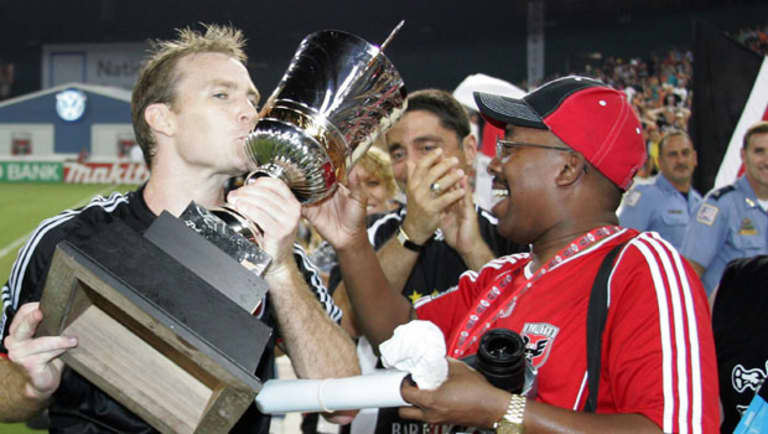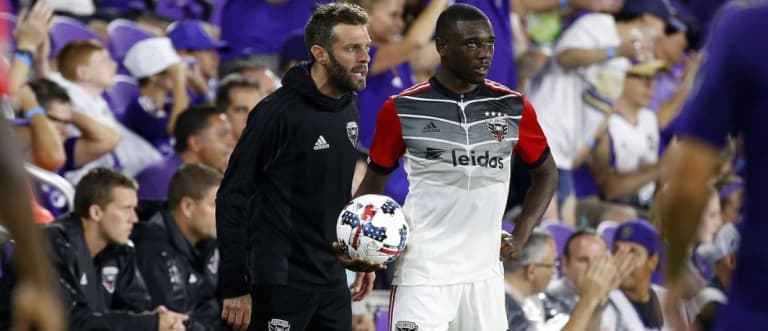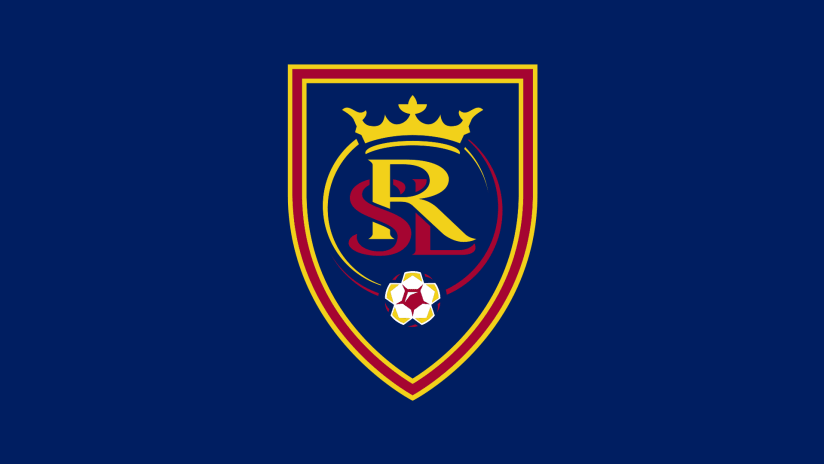WASHINGTON – D.C. United supporters have always enjoyed lording it over their Atlantic Cup rivals the New York Red Bulls, dating all the way back to that franchise’s previous incarnation as the MetroStars.
While those noisy blue neighbors up in the Bronx have more recently distracted RBNY nation, their antagonism with D.C. is 22 years old – MLS’s first true rivalry, and one that for much of its existence was pretty one-sided. While United won three of the first four MLS Cups and generally set the standard for the fledgling league, “Metro” typically struggled in most every aspect, allowing D.C. supporters to perennially tease their counterparts to the north.
So it was more than a little ironic last week when D.C. GM and VP of soccer operations Dave Kasper pointed to RBNY as a model for United as they go about setting up the comprehensive player development pathway that their long-running (and costly) residency at old RFK Stadium made nigh impossible up to this point.

D.C.'s Bryan Namoff kisses the Atlantic Cup after United won the 2008 season series against the Red Bulls. | Tony Quinn/Getty
Sure, D.C. and the Red Bulls are old enemies, who lock horns in their first Atlantic Cup clash of 2018 – and the second-ever match at United’s new Audi Field home – on Wednesday night (8 pm ET | TV and streaming info). But to borrow a thought from Pep Guardiola, often the best ideas are the ones stolen from elsewhere, and the twin resources of a strong youth academy and a well-run USL team have paid great dividends for RBNY in recent years.
Consider names like Tyler Adams, Aaron Long, Florian Valot – a hefty chunk of the Red Bulls’ current first team has spent time with the Baby Bulls, whether as rising youngsters acclimating to life in the pros or newcomers mastering the high-press system that’s become the club’s calling card.
“We now have a true pathway for area players,” Kasper told reporters at the unveiling of Loudoun United FC, D.C.’s new USL side, which will begin play next year at the club’s new training facility in Leesburg in Washington’s Northern Virginia exurbs.
“As they’re growing up, they have two professional teams to support that are joined at the hip, and there’s a pathway for those players and a vision laid out in front of them of where they can go. We’ve seen in the last few years the MLS teams that have really embraced those USL clubs, how it’s paid off for them with developing young talent faster and with more opportunities.”
A new downtown stadium. New training facility and USL team. New starpower in the form of Wayne Rooney. A newly-created “Director of South American Scouting” position, and other plans for augmenting the technical staff and growing the front office. It’s taken them longer than they planned or hoped, but D.C. United are finally shedding the limitations that kept them from truly punching at their weight in a rapidly-advancing league.
“We’re always looking from a staff and scouting standpoint, to put more quality on the field. That’s usually how you get better teams. It’s not brain surgery,” head coach Ben Olsen told MLSsoccer.com last week. “We’ll continue to push the group we have and look for more quality to enhance the way we play, from an entertainment standpoint but also from a results standpoint.
“This is certainly a step in the right direction, and there’s all types of ways you can get better as a club. And we’ll be checking off those boxes consistently, I think, going forward. And again, making sure we put ourselves in a good position to be in the postseason and ultimately, hold trophies. That’s what we all want to get back to. It’s why we do this, for those nights of joy. But we got a lot of work to do.”
United kept afloat over the past several years via a strategy of bargain-hunting, underrated veterans and pragmatic tactics. Inevitably, that approach hit certain limits when going up against opponents with more resources and infrastructure.
Now they want to not only be a more successful team, but a more aesthetically pleasing one, blending the cultivation of local products – their region is one of the most talent-dense soccer scenes in the United States – with selective overseas acquisitions.
“We’re getting there,” said goalkeeper David Ousted. “This new stadium was a milestone for the club, I think the training facility will be another one. And now it’s up to us players in there to move the club further along. I think there’s still work to be done – this season as well – to push ourselves to the place we want to be, but I definitely see development in this team and this organization.
“We are finding an identity now, I think we’re doing well by that, but I still think there’s a lot to come from this team. There’s more, both on the ball and off the ball, that we can do better. So that’s going to be a battle the whole season, always trying to get better.”

Ben Olsen with D.C. fullback and local product Chris Odoi-Atsem | USA Today Sports Images
In some ways – setting aside their proud history for a moment – D.C.’s task is similar to that of an expansion club. Ousted saw parallels to his previous club, the Vancouver Whitecaps, who were still overcoming the MLS learning curve when he arrived in 2013.
“Vancouver also had to build infrastructure a little bit before that team could move forward and get into the playoffs and be contenders in the West,” he said. “This team, it’s the same thing. We have the chance to be contenders, but there’s work to be done. It’s not going to come easy, especially in a league where there are so many good teams, and so many teams that want to push, push the league higher and further.”
The Black-and-Red expect it will be a multi-year process. Their near-term ambitions are further complicated by the steep hill they must climb to reach playoff contention thanks to this season’s backloaded schedule at Audi Field. And they’re also aiming at a moving target, with the likes of Atlanta United, LAFC and Toronto FC constantly pushing the envelope with big plans and big spending.
That said, they’re aiming for the stars right away, and the old rivals up I-95 provide both a target and a measuring stick.
“The league is moving at a very quick rate,” noted Olsen. “Every year it gets better, more money’s thrown at it. But listen, I got no excuses. I’m not here to say we can’t do this thing this year with the group that we have. I believe in the squad, I think we’ve had a tough road leading up to this point, but if we can take advantage of our home games and keep moving in the right direction, I think we’ll be OK.”












